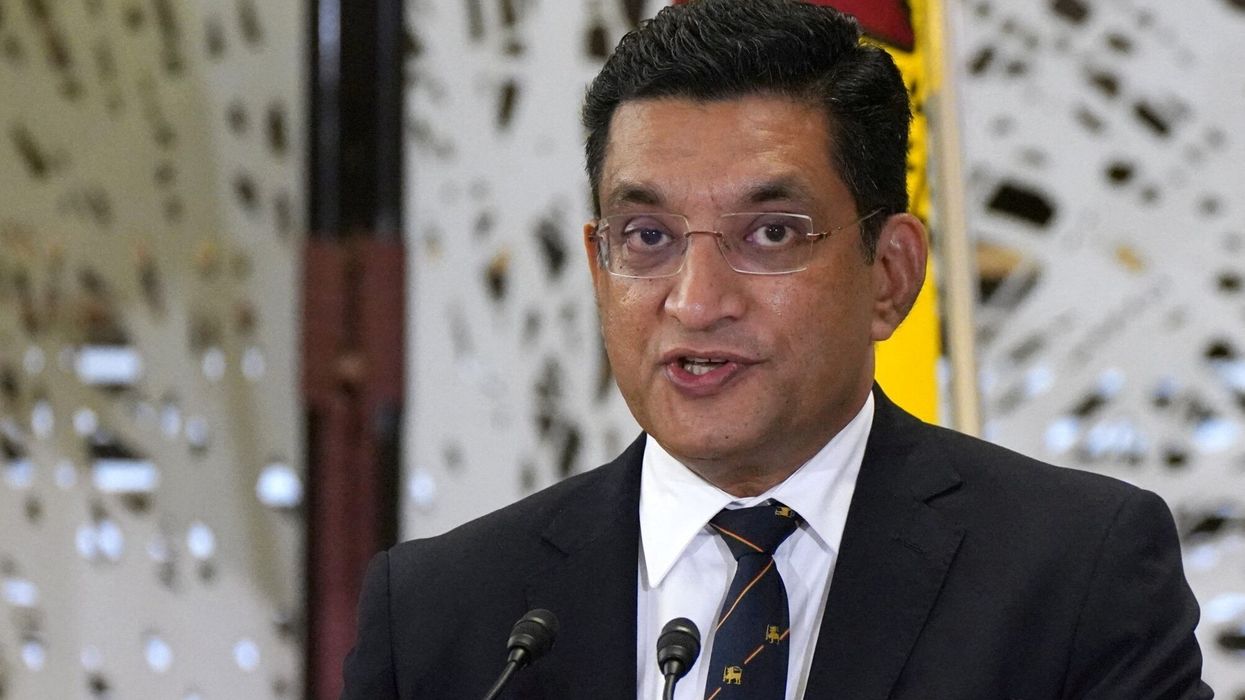SRI LANKA will wrap up talks with international bondholders on restructuring £9.7 billion in debt within a few weeks, foreign minister Ali Sabry said on Tuesday (9).
This will mark a major step for the island nation to emerge from its worst financial crisis in the past decades.
Sri Lanka will also seek to balance its ties with India and China to ensure equitable dealings with both, as the rival Asian giants are key creditors and investors vying for geopolitical influence in the small Indian Ocean country.
“Hopefully within a couple of weeks,” Sabry said in an interview at the Reuters NEXT conference in Singapore, when asked about the timeline for the nation’s bond restructuring efforts. “Towards the end of this month, officially, we are done and dusted with the restructuring process, then of course, in line with that, we need to start payment,” he added.
Sri Lanka secured a provisional agreement with some of its bondholders to move forward on restructuring its international bonds last week, but now needs the other private creditors and the International Monetary Fund (IMF) to also agree. The country, which has £28.9bn in total external debt, reached an agreement with its official creditors, including Japan, China, and India, in late June to restructure £7.8bn in debt.
The debt rework is estimated to save the island nation £6.2bn in write-offs and delay capital repayments by at least four years. Sri Lanka plans to use this opportunity to restart about a dozen stalled, foreign-funded development projects and promote economic growth, Sabry said.
Colombo needs to continue reforms, including imposing property taxes, revamping loss-making state-owned companies, and improving dollar reserves to put its economy fully on track, the IMF said in its latest review.
A country of 22 million, Sri Lanka’s economy is dependent on foreign tourists and investments, while its strategic location on a major east west shipping route near India makes it a key political player.
India, which has strong cultural ties with Sri Lanka, and China have competed for influence in Colombo for years, often ensnaring the island nation in their rivalries.
India is critical to Sri Lanka’s tourism, port development, and renewable energy sectors, with the two countries planning to eventually connect their power grids, Sabry said.
Closer ties with southern Indian states such as Tamil Nadu will fuel “a lot of synergies” that will help Sri Lanka’s economy grow faster.
In recent years, New Delhi has objected to Chinese research vessels docking at Sri Lanka’s ports, citing concerns about the capabilities and intentions of such missions near its territory. This led Colombo to suspend foreign research ships docking this year. Sabry said Colombo has now decided to engage with India, China, and others while making it clear to its partners that it will “not allow anything which would legitimately threaten” a neighbour’s security.
“We are not going to have a system which applies to everyone else and not to China...all these systems will be universal...as a neutral player, we should do that,” he said.
Sri Lanka is scheduled to hold presidential elections before mid-October, which Sabry said is evolving into a three horse race between incumbent President Ranil Wickremesinghe and two opposition politicians, with the economy being the key battleground.
Sri Lanka is expected to grow by three per cent this year for the first time since its financial crisis in 2022, when the economy went into freefall due to a severe shortage of dollars that forced it to default on its foreign debt.




